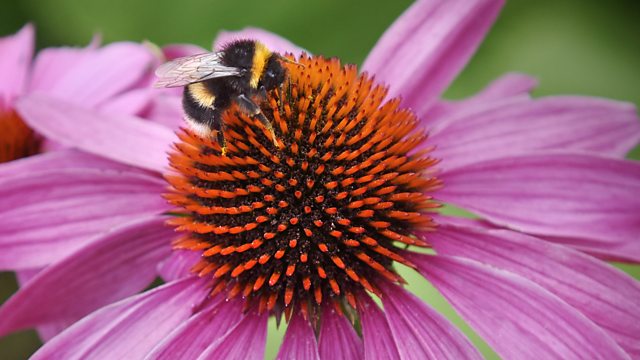Daffodils
Professor Fiona Stafford explores the nationally loved daffodil and presents many surprises including that they are not Welsh and that the UK leads the world in daffodil exports.
Richly present in art, mythology, national claims and literary works, but daffodil surprises include it not being Welsh! They are Iberian in origin and very toxic. They flourish so well in early spring because almost nothing (except a few insects) can eat them due to poisonous crystals (especially toxic to dogs). Daffodil sap is also toxic, especially to other flowers. Don't mix cut daffodils with other flowers unless the daffodils have been soaking in water for 24 hours. Recutting the stems will re-release the toxin. Despite this, the Romans used daffodil sap for its special healing powers.
Poultry keepers used to ban daffodils in their homes, as they believed it would stop their hens from laying eggs. Scientists have discovered narciclasine, a natural compound in daffodil bulbs, which is believed to be therapeutic in treating brain cancer.
The ancient Romans cultivated daffodils extensively, but they then became a forgotten flower until the 1600s. In 1629, a few Englishmen decided the daffodil was no longer a weed, starting its rehabilitation as a garden favourite after a millennium and a half. The Daffodil Data Bank contains over 13,000 daffodil and narcissus hybrids ranging in colour from yellow to orange, white, lime-green and pink.
To Victorians, daffodils represented chivalry, today they represent hope and nationalism. In Wales, spotting the first daffodil of the season means your next 12 months will be filled with wealth.
A second series of these very popular flower essays written and presented by Fiona Stafford, Professor of Literature at Somerville College Oxford. Following her three much-praised series The Meaning of Trees and the first series of The Meaning of Flowers, Fiona explores the symbolism, importance, topicality and surprises of five more of the UK's most loved flowers. Across the series of essays, our ambiguous relationship with flowers is explored.
Producer - Turan Ali
A Bona Broadcasting production for Βι¶ΉΤΌΕΔ Radio 3.
Last on
More episodes
Broadcasts
- Wed 1 Nov 2017 22:45Βι¶ΉΤΌΕΔ Radio 3
- Wed 27 Mar 2019 22:45Βι¶ΉΤΌΕΔ Radio 3
Death in Trieste
Watch: My Deaf World
The Book that Changed Me
Five figures from the arts and science introduce books that changed their lives and work.
Podcast
-
![]()
The Essay
Essays from leading writers on arts, history, philosophy, science, religion and beyond.





